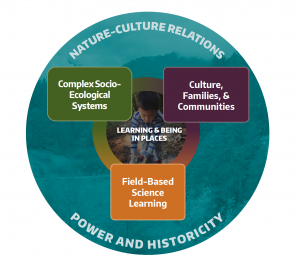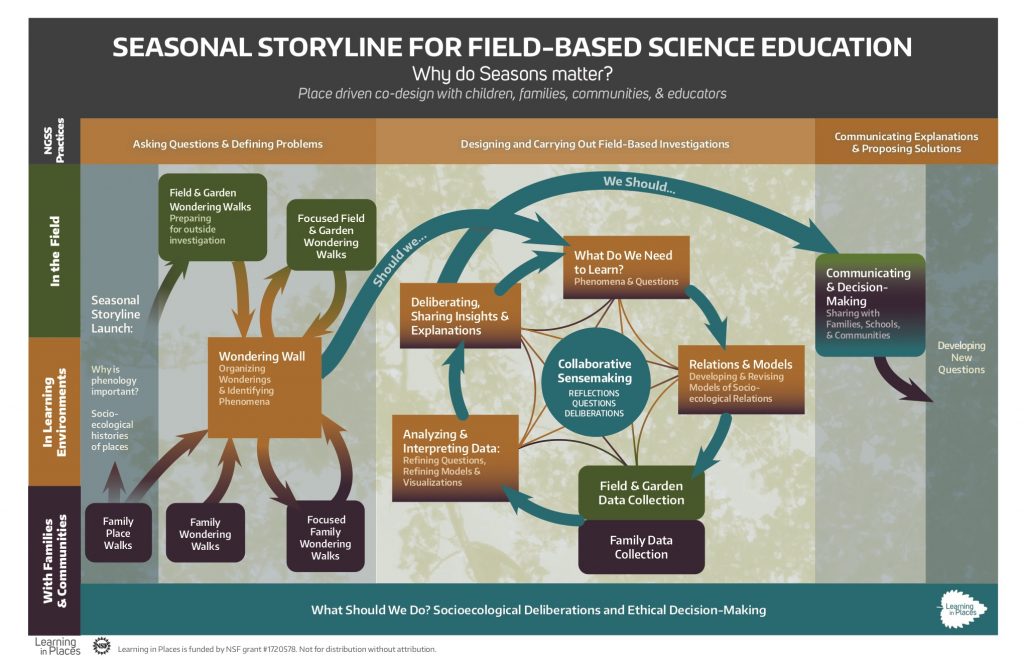Universities and schools have partnered to create more culturally and community-relevant, field-based learning opportunities to “engage students in complex ecological reasoning and decision-making”. This resource contains detailed lesson plans to work through a storyline that is “intentionally designed to support learners to engage in wonderings and science that matters in the places they live – from their own homes to neighborhood blocks, to schoolyards, parks, and beyond.”
We co-design innovative research and practice with educators, families, and community partners that cultivates equitable, culturally based, socio-ecological systems learning and sustainable decision-making utilizing “field-based” science education in outdoor places, including gardens, for children in Kindergarten to 3rd grade and their families.

“Learning Engagements” aka Lesson Plans are provided to work through this storyline. Lesson plans can be downloaded that include planning guides and learning tools, as well as data collection protocols. I believe this resource is useful to dissect and make connections with land-based learning, a fundamental principle in traditional ecological knowledge. The importance of PLACE in these lessons is apparent, a theme that has been continually present over the duration of this course. I think these lessons are not only tangible resources for educators to use to promote place-based AND land-based learning.
“…immersing students in outdoor, field-based science learning is a critical and under-utilized strategy for preparing students to wrestle with issues of socio-ecological justice such as food sustainability and water usage.”
References
Seasonal Storyline. (2021). Learning in Places. Retrieved July 13, 2021. http://learninginplaces.org/seasonal-storyline/classroom-storyline/

